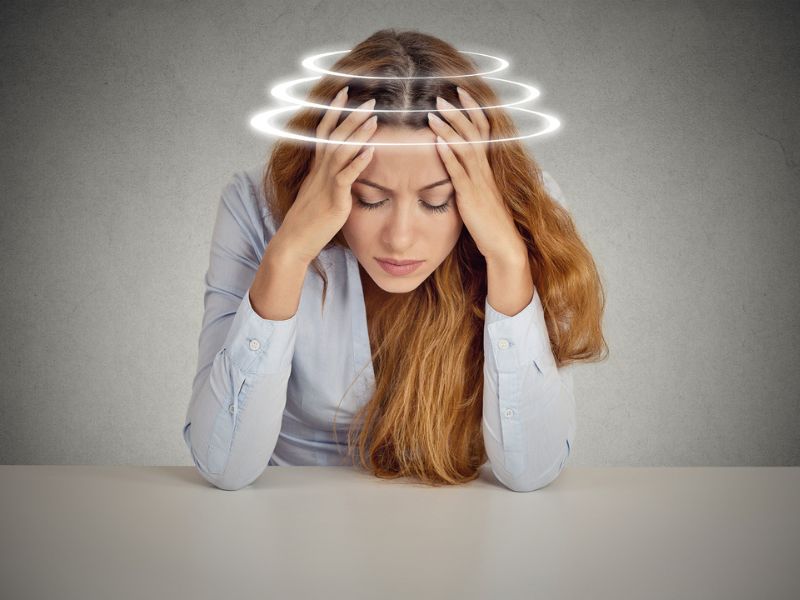Stress is a normal part of life; we all experience it occasionally. However, too much stress can hurt our physical and mental health. One of the ways that stress can affect us is by causing dizziness.
Dizziness is a feeling of lightheadedness or unsteadiness. It can make you feel like the room is spinning, or you might faint. Various factors, including low blood pressure, dehydration, and certain medications, can cause dizziness. However, stress is also a common cause of dizziness.

Image Credit: Shutterstock/pathdoc
When we experience stress, our bodies enter “fight or flight” mode. It means our bodies release hormones such as adrenaline and cortisol, which can cause physical symptoms like increased heart rate and blood pressure. These changes can affect our balance and cause dizziness.
Additionally, stress can cause muscle tension, leading to headaches and neck pain. These symptoms can also contribute to feelings of dizziness.
If you are experiencing dizziness, speaking with your doctor to rule out any underlying medical conditions is essential. However, if your dizziness is caused by stress, there are steps you can take to manage it.
One of the best ways to manage stress-induced dizziness is to practice stress-reducing techniques like deep breathing, meditation, and yoga. These practices can help you relax and reduce muscle tension, alleviating dizziness.

Image Credit: Shutterstock/Andrey_Popov
In addition, it is essential to take care of your physical health. Ensure you eat a healthy diet, stay hydrated, and exercise regularly. These habits can help reduce overall stress and prevent dizziness.
Dizziness is yet another way stress can mess with our bodies. However, by managing stress and prioritizing our health, we can alleviate these symptoms and improve our overall well-being.